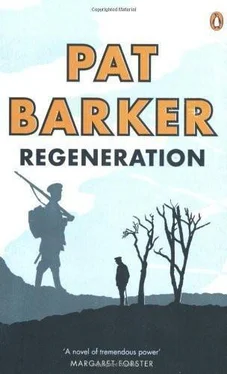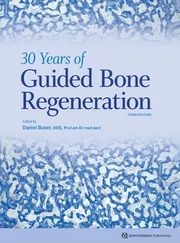They moved hens for an hour; slow, tedious work and then, as real darkness set in, went back to the house. Bertha had been baking. An earthenware pot full of bread dough stood by the kitchen range, and the whole firelit room was full of the smell of warm yeast. ‘You’ll be all right, won’t you?’ Bertha said, driving a hat pin neatly into her hat, and craning towards the mirror to make sure it was on straight. She and Charles were using Rivers as a chicken-sitter while they enjoyed a rare night out.
‘Don’t fuss, Bertha,’ Charles said.
‘There’s two loaves in the oven. They’ll be done at ten past eight. Turn them out, tap the base. If it sounds hollow, they’re done. Do you think you can manage that?’
‘He’s not a complete idiot, Bertha,’ Charles called in from the hall.
Bertha looked doubtful. ‘All right, then. Are we off?’
Charles came in wearing his hat and coat.
Rivers said, ‘I’ll see if I can get those accounts finished, Charles.’
‘I wish you would,’ Bertha murmured as she went past.
Once they’d gone, Rivers sat in the rocking chair by the fire, and concentrated on not dozing off. He hadn’t dared not eat at dinner, and the unaccustomed heavy meal and the firelight were making his eyelids droop. Last spring when he’d been here, boxes of chicks had been put to warm before the fire, and then the room had been full of the pecking and scratching of tiny beaks and feet. He remembered them struggling out of the eggs, how exhausted, wet and miserable they looked, and yet curiously powerful, little Atlases struggling to hold up the world. Now the same chicks were scruffy, bedraggled things running in the coops, and the only sound in the room was the roar of flame.
He stretched out his legs and looked at the account book on the edge of the kitchen table. He had letters he ought to write, the most urgent being one to David Burns, who’d invited him to spend the last few days of his leave at the family’s holiday cottage on the Suffolk coast. As far as Rivers could make out, Burns’s parents wanted to talk about his future, and although Rivers was not particularly anxious to do this — he found it difficult to envisage any future for Burns — he thought it his duty to accept. And then there was a half-completed letter to Sassoon, but the accounts would have to come first. Ten past eight. He got the loaves from the oven, tipped them out, and tapped the bases. Since he’d never done this before, he had no way of knowing whether this particular sound was ‘hollow’ or not. He decided they looked done, and set them to cool on the tray. Then he fetched the shoe box in which Charles stored his receipts and set to work on finishing the accounts. At intervals as he worked he looked up. The wind which had been blowing a gale all day was beginning to die down. Once he heard an owl hoot from the copse at the other side of Two-acre Field, a cold, shivery sound that made him glad of the fire and the smell of warm bread.
When he’d finished, he took the oil lamp and went along to the front room, intending to have another go at finishing his letter to Siegfried. He put the lamp down on the desk. Ranged at intervals around the walls, big heavy pieces of furniture squatted on their own shadows. Most of them he remembered from his childhood home: Knowles Bank. They were too big to fit into his sisters’ cottage, he had no need of them, and so Charles and Bertha had inherited them all. Their presence here in different places, at different angles to the walls and to each other, gave him an odd feeling of slipping back into an out-of-focus version of his childhood.
A cold, unused room. All the farm paperwork was done in the kitchen. He decided to take his letter along and finish it there, but then lingered, fingering the leather of the desk top and looking at the picture that hung above the empty grate. At Knowles Bank it had hung in the same position, above the fireplace, in his father’s study. As a picture it could hardly have been more appropriate to his father’s dual role as priest and speech therapist, since it showed the Apostles at Pentecost immediately after they had received the gift of tongues. There they sat, each under his own personal flame, rendered in an instant fluent, persuasive and articulate, not merely in their own language but in all known tongues. Rivers remembered the bishop’s sermon one Pentecost when he’d explained that the gift of tongues as bestowed upon the Apostles had absolutely nothing to do with ‘the gift of tongues’ as bestowed regularly every Sunday on uneducated riff-raff in various tin-roofed chapels about the diocese. The gift of Pentecost had made the Apostles comprehensible in all known languages. And there they sat still, looking, Rivers couldn’t help thinking, most unchristianly smug about it all.
He’d sat with other boys — his father’s pupils — underneath that picture for many a long hour, stumbling over the consonants of his own language, remembering to hold down the back of his tongue, project his breath in an even flow, etc., etc. Sometimes his father would walk with him up and down the room, since he believed the measured pace helped to regulate the flow of breath. Rivers hadn’t been the star pupil in those classes, not by any means. If anything he’d made rather less progress than the rest, in spite of — or because of? — having his teacher with him all the time. The house was full of stammering boys, any age from ten to nineteen, and at least it meant he was not the only one. It had had another advantage too, he remembered. While the boys were there, the Reverend Charles Dodgson stayed away. Mr Dodgson didn’t like boys. As soon as they left at Christmas or in the summer holidays, he arrived, taking lessons every evening after dinner. Rivers, from long exposure to other people’s speech impediments, could sum up the main features of a stammer almost as quickly as his father. Dodgson found m difficult, and p in consonant combinations, particularly in the middle of words, but his arch enemy was hard c.
During the day there were boating trips on the river. Dodgson and the four Rivers children, himself, Charles, Ethel and — Dodgson’s favourite — Katharine. He’d never enjoyed those trips much, and neither, he thought, had Charles, though probably that was no more than the slight pique of two Victorian schoolboys, finding themselves, for the first time in their lives, not of the preferred sex. Afterwards, during those apparently endless summer evenings, there would be croquet on the lawn, Rivers’s father and Dodgson playing, the children watching. There was a photograph of them on the desk, doing just that, he and Charles leaning back against the garden roller, no doubt getting grass stains on their white shirts, the two little girls, his sisters, under the shade of the beech tree. If he tried hard, he could recall the feel of the roller against his shoulder blades, the heat of the sun on the back of his neck.
He had one other memory of Dodgson. One evening he’d crept close to the open window of his father’s study, sat down with his back to the wall and listened to the lesson in progress. Why he’d done this he couldn’t now remember, except that it hadn’t felt like eavesdropping, since he knew nothing private was likely to be said. Perhaps he’d just wanted to hear Dodgson put through the same routine he and the other boys were put through. Perhaps he’d wanted to see him cut down to size. Dodgson had just embarked on the sentence about the careful cat catching the mouse — a simple enough tale, but already, in Dodgson’s mouth, threatening to become an epic. Rivers listened to his father’s advice, the same advice, basically, that he got, though conveyed without that peculiar note of fraught patience. He thought suddenly, this is nonsense. It doesn’t help to remember to keep your tongue down, it doesn’t help to think about the flow of breath. So he’d thought, sweeping away his father’s life work in a single minute as twelve-year-old boys are apt to do. He’d raised his head very cautiously above the window sill, and seen his father sitting behind the desk — this desk — his back to the window, clean pink neck showing above clean white collar, broad shoulders straining the cloth of his jacket. He stared at the back of his neck, at the neck of the man whom he had, in a way, just killed, and he didn’t feel sad or guilty about it at all. He felt glad.
Читать дальше












